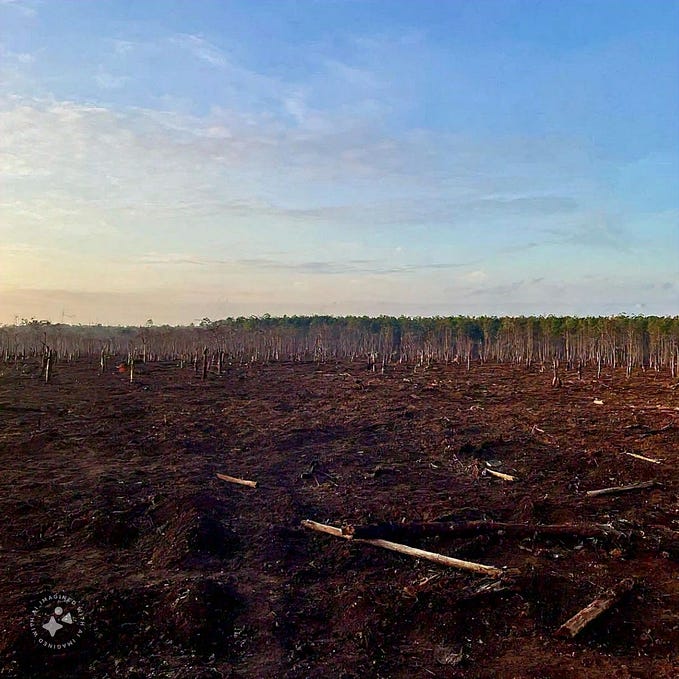Inside Interior Secretary David Bernhardt’s Wildly Destructive Track Record
The former oil lobbyist has built a shameful legacy for our parks, public lands, and wildlife

Interior Secretary David Bernhardt joined the Trump administration after a lucrative career as a lawyer and lobbyist for drilling and mining companies. In office, he has raced to enact the policy priorities of the oil, gas, and mining industries at the expense of vulnerable communities across the country. Such blatant favoritism has required bending laws and ethics rules, all of which has led to Bernhardt’s dismal record in the courts.
An analysis by the nonpartisan Institute for Policy Integrity found that more than 80% of Interior Department actions challenged in court have not been upheld by federal judges. For example, a federal judge recently invalidated an Interior Department legal opinion that would allow oil companies to inadvertently kill migratory birds without penalties. In another case, a judge ruled Secretary Bernhardt had illegally kept acting Bureau of Land Management director William Perry Pendley in office, thereby invalidating new policies he had a role in crafting.
As Bernhardt takes years of anti-conservation baggage and blatant contempt for Indigenous communities back to the private sector, the next administration will face the tall task of undoing the damage. Here’s a brief look inside Bernhardt’s destructive track record:

Dismissing Native American tribes to promote President Trump’s vanity projects
As Interior Secretary, David Bernhardt is responsible for upholding the United States’ trust and treaty obligations to sovereign tribal nations. Instead of upholding those obligations, Bernhardt prioritized the political wishes of President Trump by:
- Facilitating the blasting of ancient burial sites and land sacred to the Tohono O’odham Nation to build the border wall, including lands in Organ Pipe Cactus National Monument
- Helping draft the proclamation to dramatically shrink Bears Ears National Monument in Utah, over the staunch opposition of numerous Native American tribes who consider the area sacred and led the historic effort to create the monument
- Conducting a massive and potentially dangerous July 4 fireworks display over Mount Rushmore, despite a request from the Lower Brule Sioux Tribe and several other tribes to cancel the celebration taking place on their traditional territory and lands they consider sacred
- Failing to provide adequate assistance to tribal nations that are being severely and disproportionately impacted by the coronavirus pandemic. In South Dakota, one tribe is suing after the Interior Department threatened to withhold funding for their police force after the tribe instituted checkpoints to evaluate visitors for coronavirus
- Moving forward with plans to open lands surrounding Chaco Culture National Historical Park in New Mexico to drilling, despite strong opposition from nearby Native American tribes facing the surging coronavirus pandemic

Using parks and public lands as political tools
Throughout his time in office, Secretary Bernhardt has used our parks and public lands to grant President Trump’s political whims, rather than for all Americans.
- Used National Park Service police to tear gas peaceful protesters in Lafayette Square ahead of a presidential photo op
- Allowed national parks to be used as centerpieces of President Trump’s reelection campaign
- Staged President Trump’s Fox News town hall inside the Lincoln Memorial
- Staged expensive military-infused Independence Day rallies on the National Mall
- Botched the coronavirus pandemic response by failing to provide timely guidance and allowing national parks to stay open, threatening staff, visitors, and gateway communities
- Left national parks open, but understaffed, during multiple government shutdowns, leaving them vulnerable to vandalism

Eviscerating critical protections for wildlife and public health
Secretary Bernhardt has led a rollback of wildlife and public health protections that is unprecedented and breathtaking in scope, all to benefit extractive industries and his former clients, including:
- Finalizing a plan to allow drilling in the Arctic National Wildlife Refuge, the largest intact wild landscape in America
- Eviscerating the Migratory Bird Treaty Act, allowing oil companies to kill birds in oil spills without penalties
- Significantly weakening enforcement of the Endangered Species Act at the behest of the oil industry
- Removing protections for iconic species, including gray wolves and Yellowstone grizzly bears, under the Endangered Species Act
- Weakening protections for the imperiled sage-grouse across vast swaths of the West, clearing the way for more drilling and mining
- Opening 9.3 million acres of Alaska’s Tongass National Forest — America’s largest intact old-growth temperate rainforest — to logging
- Weakening offshore drilling safety standards enacted after the devastating Deepwater Horizon oil spill
- Gutting public health safeguards designed to reduce methane pollution from oil and gas drilling on public lands
Repeatedly bending ethics rules and delivering favors to his former clients
Assuming office shortly after advising and lobbying for dozens of clients with business before the department, David Bernhardt has been the most ethically conflicted Interior Secretary in recent history. In office, Bernhardt has consistently delivered policy favors for his former clients and skirted ethics rules, including:
- Repeatedly delivering policy favors for Westlands Water District, one of his largest former clients, including reducing protections for endangered California fish species and offering the first permanent federal water contract in history
- Disputing guidance from career ethics officials in an attempt to meet with former clients
- Reversing Interior Department policy to advance a controversial pipeline funneling water from the desert near Joshua Tree National Park to the Los Angeles suburbs, a project which Bernhardt lobbied in favor of
- Delivering extensive policy favors to clients who have paid his former firm millions to lobby the Interior Department
- Blocking the public and Congress from viewing his calendars, hiding meeting participants and topics
- Keeping his “closest friend” employed in a top job despite two investigations that found he committed egregious ethical violations
- Overseeing political interference to block sensitive information from being released through public information requests

Managing our public lands for drilling and mining while sidelining key agencies
Entrusted with managing our parks and public lands for the benefit of all Americans, Secretary Bernhardt instead focused exclusively on expanding drilling and mining, while dismantling and sidelining key agencies, such as the Bureau of Land Management and the National Park Service. Some of his actions include:
- Offering millions of acres of public lands for oil and gas development, including lands on the doorstep of multiple national parks and monuments
- Dismantling the Bureau of Land Management headquarters, forcing dozens of career employees to quit rather than uproot their entire lives
- Violating the Vacancies Reform Act by leaving “acting” directors in charge of bureaus for years and side-stepping the advise and consent role of the Senate
- Placing William Perry Pendley, a racist, xenophobic, anti-public lands extremist in charge of the Bureau of Land Management
- Appointing Margaret Everson, an advisor to Secretary Bernhardt with no prior experience in the National Park Service, as acting National Park Service director
In sum, David Bernhardt’s track record is the most destructive of any Interior Secretary in recent memory. He has bent the rules in a race to benefit drilling and mining companies, all while sidelining the public and vulnerable communities across the West. Many of these actions are already facing defeat in the court system, and others will lead to devastating consequences for public health, public lands, and wildlife in the years to come. Secretary Bernhardt will soon walk through the revolving door and look for employment in the private sector. While Bernhardt looks to profit off his destructive legacy, the next administration will have to pick up the pieces.
For more information, visit westernpriorities.org. Sign up for Look West to get daily public lands and energy news sent to your inbox, or subscribe to our podcast, The Landscape.












